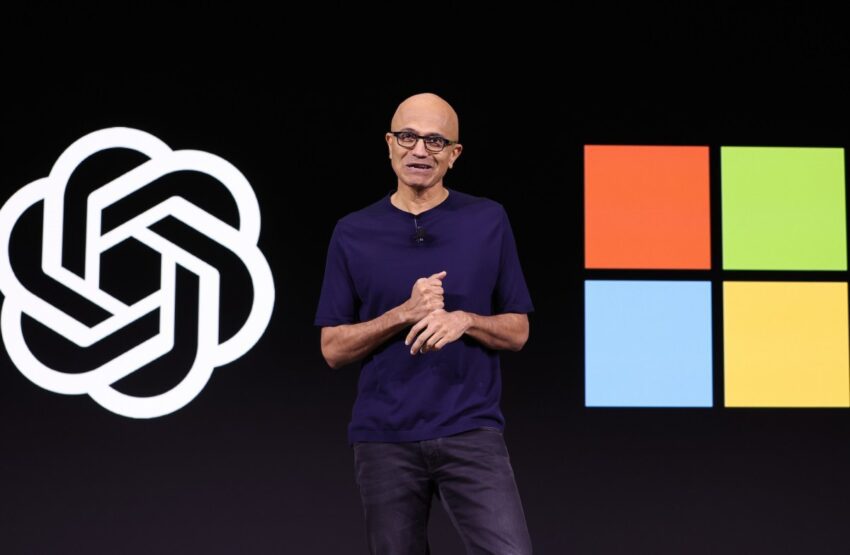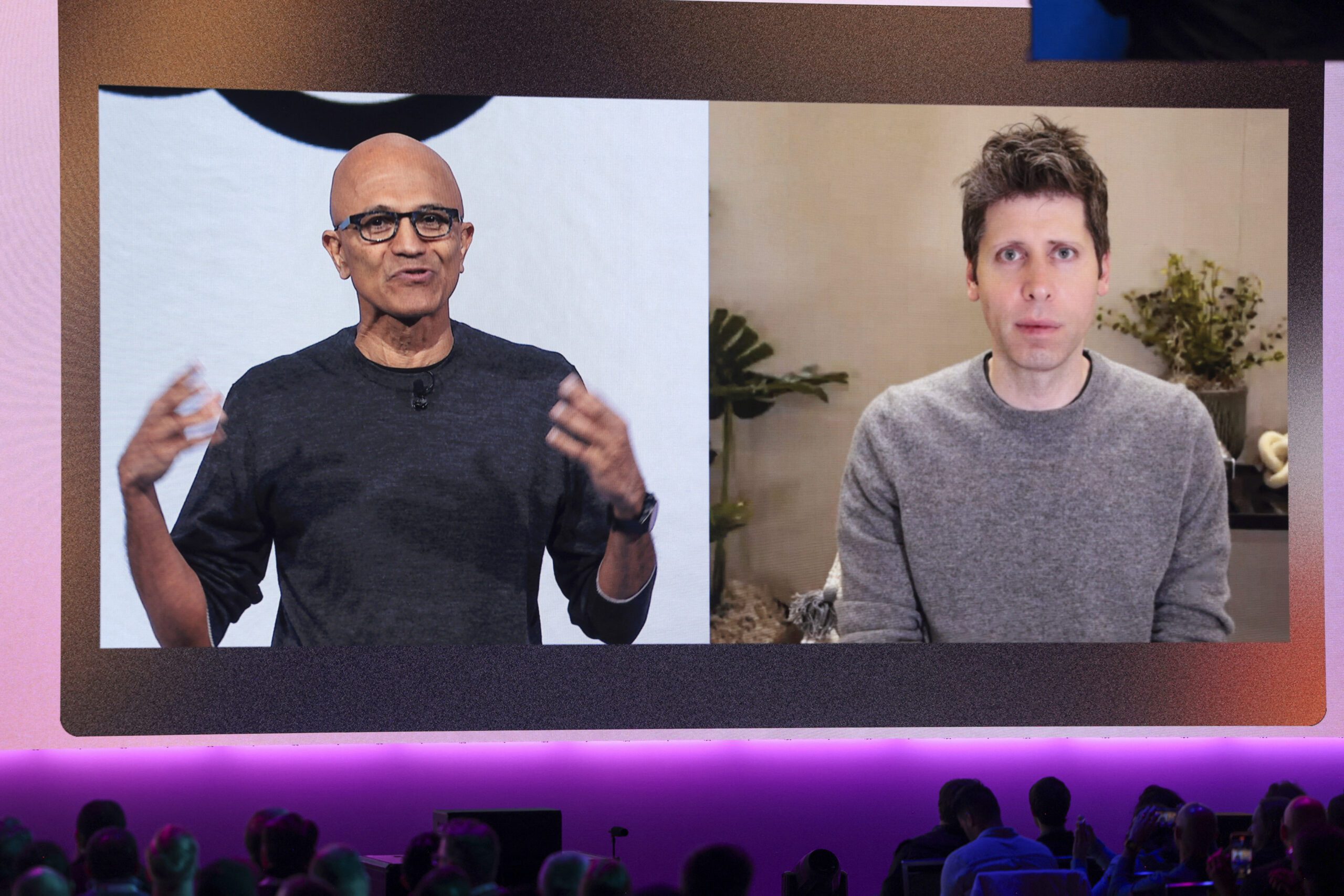
openai secures microsoft s blessing to transition OpenAI has successfully negotiated a non-binding agreement with Microsoft, marking a significant shift in their partnership dynamics.
openai secures microsoft s blessing to transition
Background of the Partnership
The collaboration between OpenAI and Microsoft has evolved significantly since its inception. Initially, Microsoft invested $1 billion in OpenAI in 2019, which laid the groundwork for a strategic partnership aimed at advancing artificial intelligence technologies. This investment allowed OpenAI to leverage Microsoft’s cloud computing capabilities, particularly through Azure, to enhance its research and development efforts.
Over the years, the partnership has deepened, with Microsoft integrating OpenAI’s models into its products, including the popular Microsoft 365 suite. This integration has enabled features like AI-assisted writing and data analysis, showcasing the potential of AI in enhancing productivity tools. The collaboration has not only benefited Microsoft’s offerings but has also provided OpenAI with a robust platform to scale its innovations.
The New Agreement
The recent agreement between OpenAI and Microsoft signals a pivotal moment in their relationship. While the details of the non-binding agreement remain largely undisclosed, both companies have indicated that it will pave the way for OpenAI’s transition into a more commercially focused entity. This shift is particularly noteworthy as it aligns with OpenAI’s mission to ensure that artificial general intelligence (AGI) benefits all of humanity.
Implications of the Transition
The transition to a for-profit arm is significant for several reasons:
- Financial Sustainability: By moving towards a for-profit model, OpenAI aims to secure the financial resources necessary for its ambitious research goals. Developing advanced AI technologies requires substantial investment, and a for-profit structure could provide a more sustainable funding model.
- Broader Market Reach: A for-profit approach may enable OpenAI to expand its market presence, allowing it to compete more aggressively with other tech giants in the AI space. This could lead to more innovative products and services that leverage AI capabilities.
- Ethical Considerations: OpenAI has consistently emphasized the importance of ethical AI development. The transition to a for-profit model raises questions about how the organization will balance profit motives with its commitment to responsible AI usage.
Stakeholder Reactions
The announcement of the agreement has elicited a range of reactions from stakeholders across the tech industry. Analysts and investors have expressed cautious optimism about the potential for increased innovation and market competitiveness. The prospect of OpenAI becoming a more commercially viable entity could attract additional investments and partnerships, further fueling its growth.
However, some industry experts have raised concerns about the implications of a for-profit model on OpenAI’s foundational principles. The organization has long positioned itself as a leader in ethical AI development, and there are worries that a shift towards profit could compromise its commitment to ensuring that AI technologies are developed and deployed responsibly.
Community Perspectives
The AI research community has also weighed in on the agreement. Many researchers are hopeful that increased funding and resources will lead to breakthroughs in AI capabilities. However, there is a prevailing concern that the competitive nature of a for-profit model could stifle collaboration and knowledge sharing, which have been hallmarks of the AI research community.
Moreover, the potential for OpenAI to prioritize commercial interests over ethical considerations has sparked discussions about the need for regulatory frameworks to ensure that AI technologies are developed in a manner that is beneficial to society as a whole. As AI continues to permeate various sectors, the importance of maintaining ethical standards becomes increasingly critical.
Future Prospects
Looking ahead, the revised partnership between OpenAI and Microsoft could set the stage for a new era of AI development. As both companies work to finalize the terms of their agreement, several key areas are likely to be focal points:
Investment in Research and Development
With the transition to a for-profit model, OpenAI may have greater flexibility to invest in research and development initiatives. This could lead to advancements in areas such as natural language processing, computer vision, and machine learning algorithms. As competition in the AI space intensifies, the ability to innovate rapidly will be crucial for OpenAI to maintain its leadership position.
Collaboration with Other Tech Giants
The partnership with Microsoft may also open doors for OpenAI to collaborate with other tech giants. As AI technology becomes increasingly integrated into various industries, partnerships with companies across sectors could facilitate the development of tailored solutions that address specific challenges. This collaborative approach could enhance the overall impact of AI technologies on society.
Regulatory Compliance and Ethical Standards
As OpenAI transitions to a for-profit model, it will be essential for the organization to navigate the regulatory landscape effectively. Governments and regulatory bodies are increasingly scrutinizing AI technologies, particularly concerning issues related to privacy, bias, and accountability. OpenAI will need to ensure that its practices align with emerging regulations while maintaining its commitment to ethical AI development.
Conclusion
The non-binding agreement between OpenAI and Microsoft marks a significant milestone in the evolution of their partnership. As OpenAI transitions to a for-profit model, the implications for the organization, the tech industry, and society at large are profound. While the potential for increased innovation and market competitiveness is promising, it is imperative that OpenAI remains steadfast in its commitment to ethical AI development. The coming months will be critical as both companies work to finalize the terms of their agreement and chart a course for the future of AI.
Source: Original report
Was this helpful?
Last Modified: September 12, 2025 at 4:37 am
0 views















